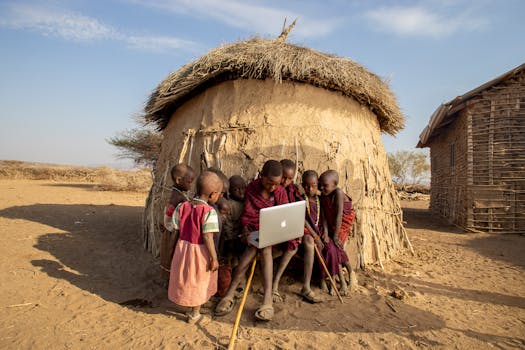Empowering Communities: The Impact of Fiber Companies on Rural Connectivity in Africa – Fiber Optics & Connectivity

Empowering Communities: The Impact of Fiber Companies on Rural Connectivity in Africa
The advent of fiber companies in Africa has revolutionized the continent’s connectivity landscape, particularly in rural areas. For decades, these communities have struggled with limited or no access to reliable and high-speed internet, hindering their economic growth, education, and healthcare. However, with the proliferation of fiber optic cables, rural areas can now access the digital world, bridging the digital divide and fostering economic growth.
Introduction to Fiber Companies in Africa
Fiber companies have been instrumental in expanding Africa’s fiber optic network, providing high-speed internet to urban and rural areas. These companies have invested heavily in building fiber infrastructure, including undersea cables, terrestrial fiber cables, and last-mile connectivity solutions. As a result, many African countries have witnessed a significant increase in internet penetration, with some countries experiencing growth rates of up to 50% in the past five years.
The impact of fiber companies on rural connectivity in Africa is multifaceted. On one hand, fiber optic cables have enabled rural communities to access high-speed internet, facilitating online education, healthcare, and economic opportunities. On the other hand, fiber companies have created jobs, stimulated local economies, and improved the overall quality of life for rural residents.
The Benefits of Fiber Connectivity in Rural Africa
The benefits of fiber connectivity in rural Africa are numerous. First and foremost, fiber optic cables have enabled rural communities to access high-speed internet, which has opened up new opportunities for online education and skills development. With fiber connectivity, rural students can now access online educational resources, participate in virtual classrooms, and connect with teachers and peers from around the world.
Fiber connectivity has also improved healthcare outcomes in rural Africa. With high-speed internet, medical professionals can now access medical records, consult with specialists, and provide telemedicine services to patients in remote areas. Additionally, fiber connectivity has enabled the deployment of e-health services, such as remote monitoring and diagnostic tools, which have improved the quality of healthcare in rural areas.
Furthermore, fiber connectivity has stimulated economic growth in rural Africa. With high-speed internet, rural businesses can now access new markets, connect with customers, and participate in the global economy. Fiber connectivity has also enabled the growth of e-commerce, digital payments, and other online services, which have created new job opportunities and stimulated local economies.
Challenges and Opportunities for Fiber Companies in Africa
Despite the progress made in expanding fiber connectivity in Africa, there are still significant challenges that need to be addressed. One of the major challenges is the high cost of deploying fiber infrastructure, particularly in rural areas where the population density is low and the terrain is difficult. Fiber companies have to invest heavily in building fiber cables, which can be prohibitively expensive, especially in areas where the revenue potential is limited.
Another challenge is the lack of regulatory frameworks and policies that support the development of fiber infrastructure. In many African countries, the regulatory environment is unclear or unfavorable, which can discourage investment in fiber infrastructure. Additionally, the lack of standardization and coordination among different stakeholders can hinder the deployment of fiber cables and the provision of fiber-based services.
However, there are also opportunities for fiber companies in Africa. The growing demand for high-speed internet and the increasing adoption of digital services have created a huge market for fiber-based services. Fiber companies can leverage this demand to expand their services, improve their networks, and increase their revenue. Additionally, the development of new technologies, such as 5G and the Internet of Things (IoT), has created new opportunities for fiber companies to provide innovative services and solutions.
Conclusion
In conclusion, the impact of fiber companies on rural connectivity in Africa has been significant. With fiber optic cables, rural communities can now access high-speed internet, bridging the digital divide and fostering economic growth. While there are still challenges that need to be addressed, the benefits of fiber connectivity in rural Africa are numerous, and the opportunities for fiber companies are huge. As Africa continues to develop its fiber infrastructure, it is essential to address the challenges and leverage the opportunities to create a more connected, more prosperous, and more equitable continent.




